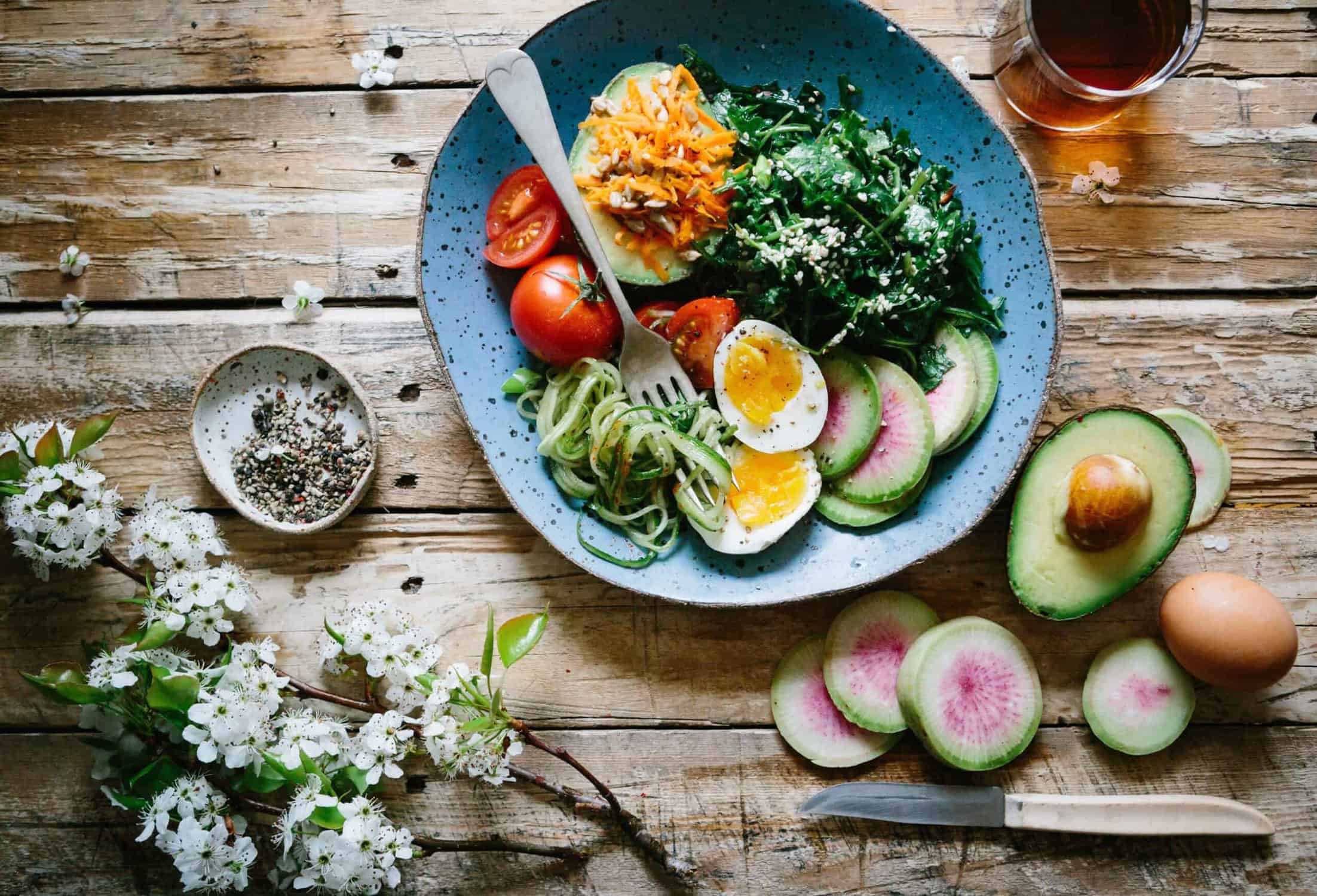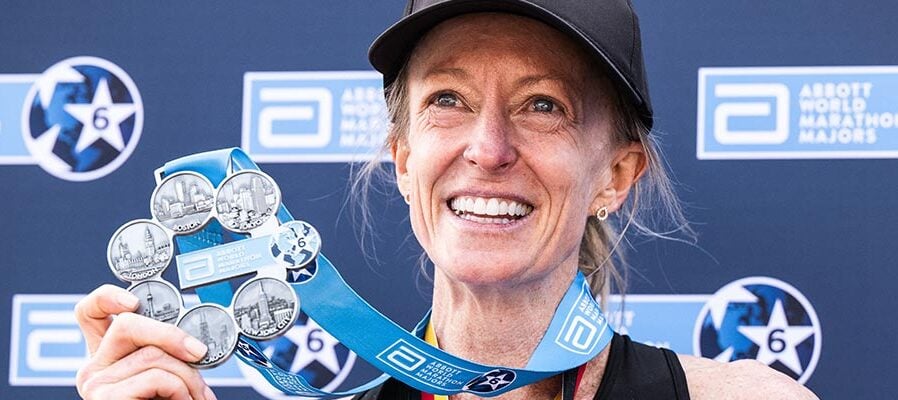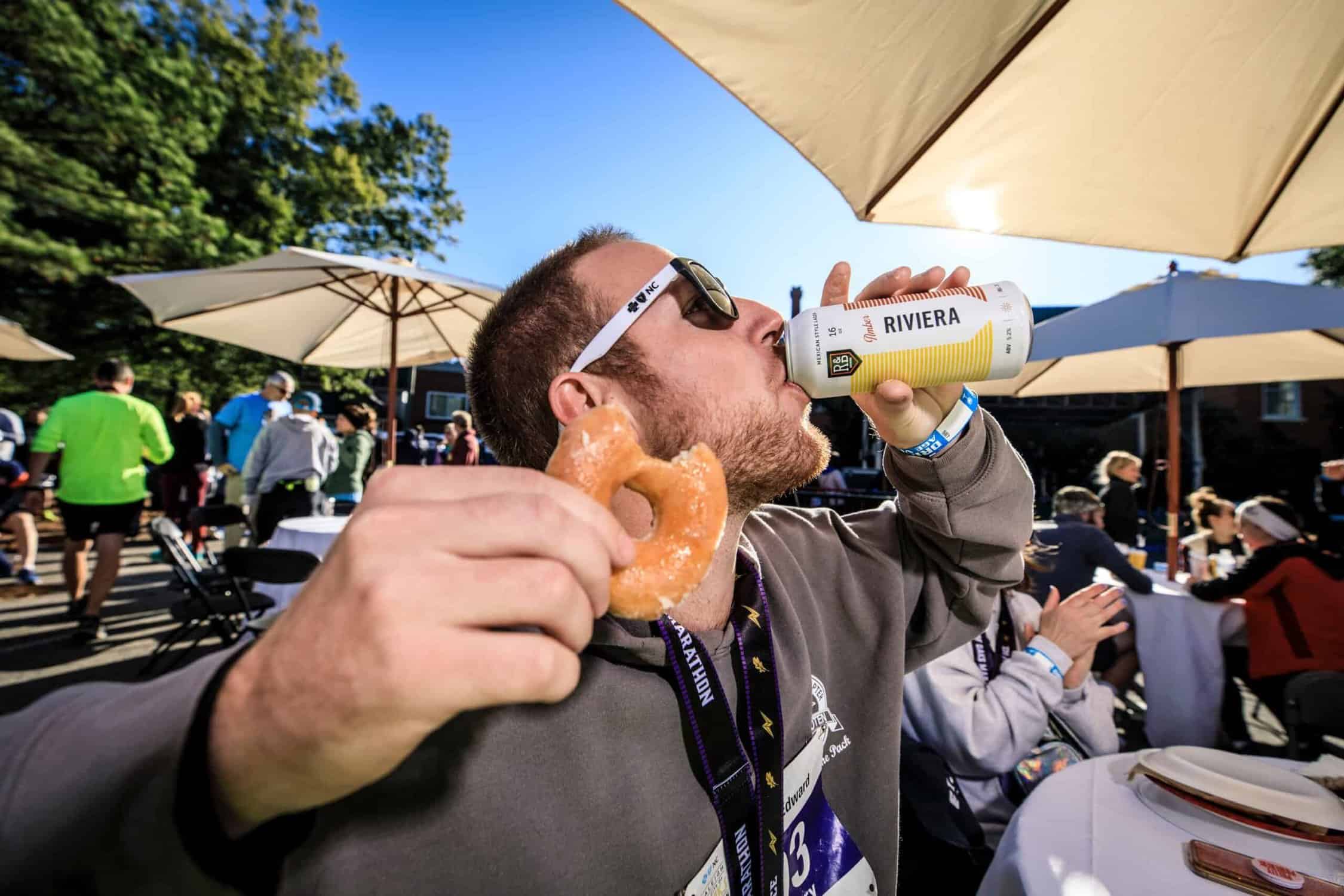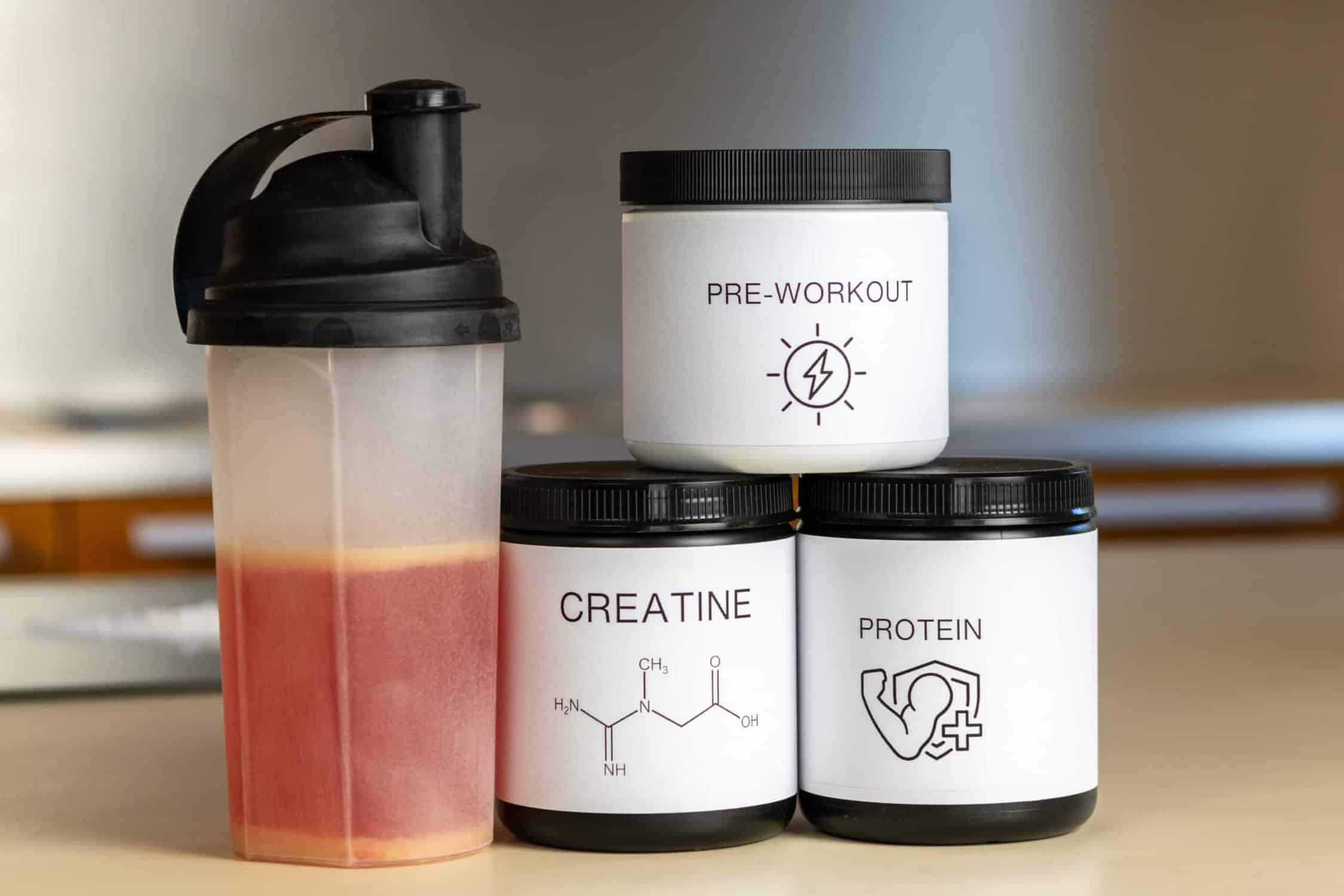You’ve logged your longest training run, you’ve tapered and incorporated rest—but preparing for a half marathon requires more than just physical training. I learned this the hard way when I ran my first half marathon in 2018. I didn’t think at all about what to eat before a race; I paid no attention to carbohydrate intake, electrolytes, or pre-race fueling. Without the proper glycogen stores for my race, I “hit the wall” 6 miles into my half marathon—the second 7 miles were, to say the least, not fun.
I have since dialed my long-distance running nutrition. Being a registered dietitian, I’ve learned and tested thousands of scenarios on how exactly to fuel my and my client’s bodies with the right nutrients. Now I know the best foods to run faster and with less effort; have a pain-free race; and ensure a runner has enough energy levels to blow past the finish line (instead of just barely crawl).
Here, I’ll walk you through my comprehensive nutrition plan on what to eat before a race, including the full week before, night before, and day of your half marathon.
What to Eat the Week Before a Race
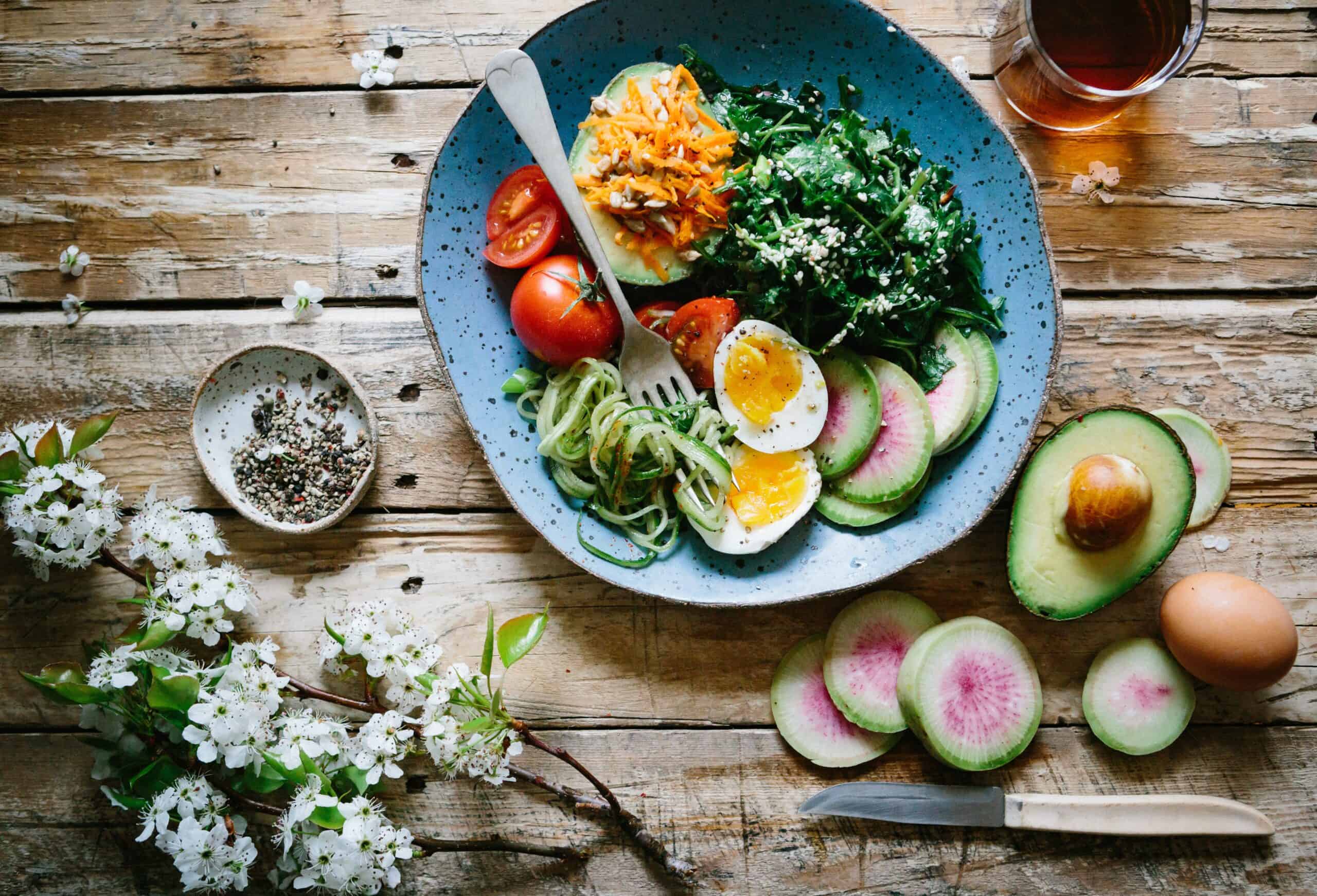
In the days leading up to your race, what you eat matters…a lot!
Here are four the most important aspects of nutrition strategy the week before a half marathon:
- Carbohydrate loading
- Consume high-quality protein
- Opt for “healthy” fats
- Hydration, hydration, hydration
- Load Up On Carbohydrates
Whether you’re preparing for a marathon or a half marathon, increasing your carbohydrate intake before a race will give your body more energy to perform for any endurance event where your body is working for more than 90 minutes.
It’s called “carbohydrate loading,” or, more often, “carb loading.”
The goal of carb loading is to maximize glycogen stores in the muscles and liver. Glycogen is the primary fuel source during all aerobic exercise. The more you have of it in storage, the more energy your body will have during a long run.
A 2022 study from researchers in the U.K. found that elite endurance runners who ate a high-carb diet before a time trial improved their performance by an average of 6.5%, whereas switching to a high-protein diet decreased their performance.
Now, carb loading won’t really make the average runner noticeably faster—that’s what your half marathon training is for. But, carb loading will help prevent you from bonking or “hitting the wall” during any endurance activity.
Carb loading isn’t necessary for shorter races like 5K or 10K. On average, these take a runner less than 60 minutes to complete. Your glycogen reserves only run out after 90 minutes of activity.
When to Start Carb Loading
You should start carb loading 7 days before a marathon and 3 days before a half marathon.
Aim to consume around 7-10 grams of carbohydrate per kilogram of body weight per day during the carbo-loading phase.
For example, if you weigh 70 kilograms (or 154 pounds), you should aim for approximately 490-700 grams of carbs each day. For context, a cup of cooked pasta is between 37 and 43 grams of carbohydrates.
What to Eat to Carb Load Before a Race
Seven to 10 grams of carbs per kilogram of body weight is a lot more than you might expect. To hit the lowest threshold of carbohydrate intake during a carb load phase, you’d need to consume 10 cups of cooked pasta.
When consider what types of foods to include in your carb loading period, here are common food staples of the running community:
- Sweet potatoes (27g per 1 cup)
- Oatmeal (27g per 1 cup cooked)
- Quinoa (39.4g per 1 cup cooked)
- Rice (45g per 1 cup cooked)
- Pasta (40g per 1 cup cooked)
- Toast (13g per 1 slice wheat toasted)
- Pancakes (8g per 1 oz of pancakes)
- Bagel (48g per 1 bagel)
- Bananas (27g per 1 banana)
- Gatorade (36g per 100ml)
Even though you might be used to whole grains and complex carbohydrates, decrease excess fiber intake during the carbo loading phase. A high amount of fiber is difficult to digest and may irritate your gastrointestinal system.
- Eat High-Quality Protein
In the week before a race, 85-90% of your daily caloric intake should come from carbs. This means that you’ll be eating less of low-carb vegetables, fat, and protein.
However, protein plays an important role in muscle repair, development, and recovery.
You want the remaining 10-15% of your calorie to include small amounts of protein.
As a registered dietitian, I recommend lean sources of organic proteins like chicken, turkey, fish, beans, lentils, and/or tofu in your meals to support your half marathon training and aid in muscle recovery before the race.
- Opt for healthy fats
Similarly, make a point to choose healthy fat choices the week before your half marathon. This includes:
- Avocados
- Nuts
- Seeds
- Peanut butter
- Olive oil.
Healthy fats are a highly-concentrated energy source (9 calories/gram) which is double that provided by carbohydrates and proteins. When you exercise enough to deplete your carb stores, your body will turn to oxidizing fat for energy. While we’re trying to avoid this happening by carb loading and refueling during a race, it’s smart to have some fresh stores in your body before going into a race.
Additionally, healthy fats contain vitamins A, D, E, and K. These are fat-soluble and help with overall nutrition nutrient absorption by the body.
- Hydrate Like Crazy
To stay hydrated, drink more water and electrolyte-filled sports drinks in the week before your race. Electrolytes are important for replenishing sweat losses and preventing cramping.
Gatorade is a great choice because it contains carbs and electrolytes.
What to Eat the Day Before a Race
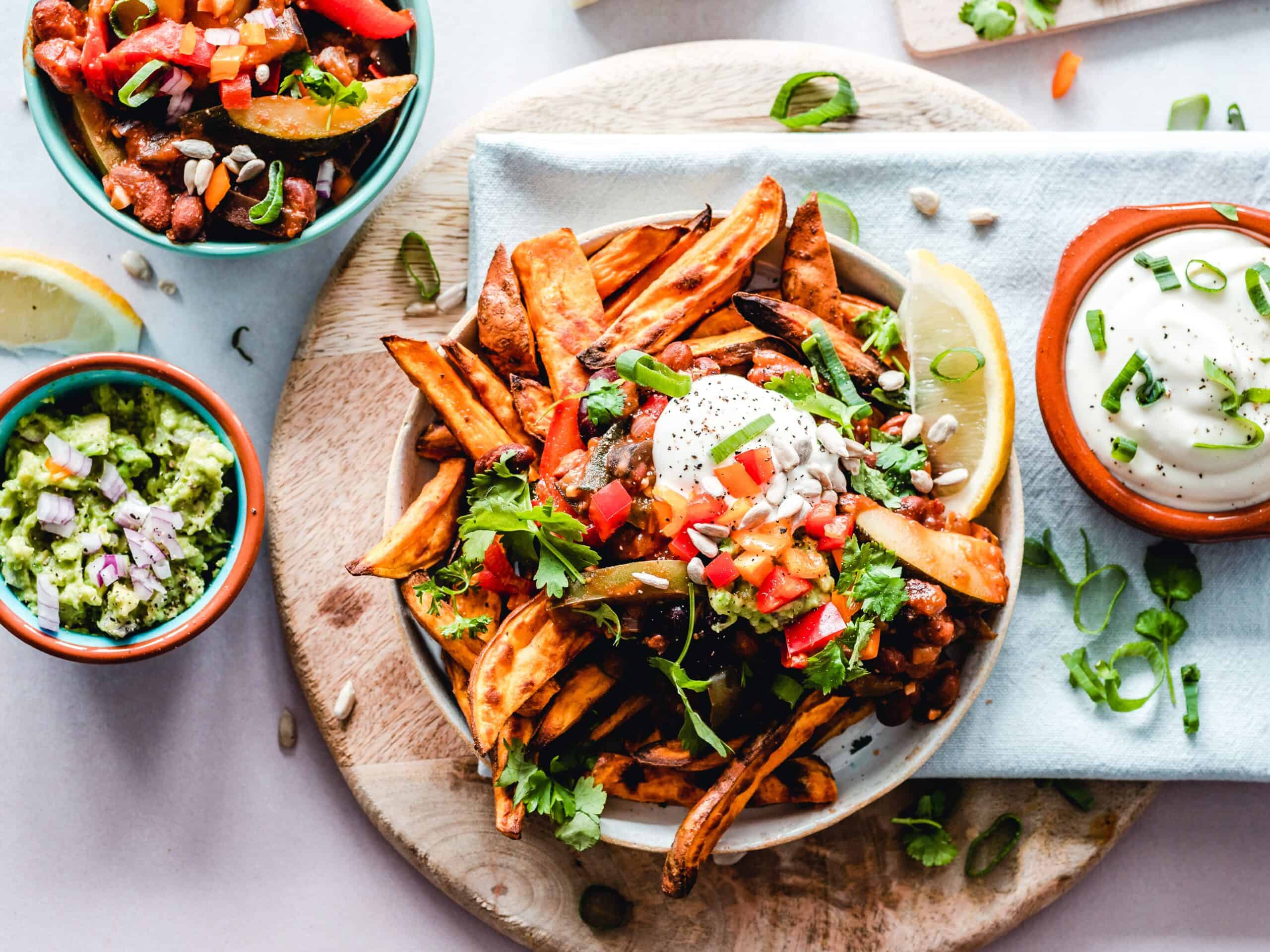
The day before your race should be the peak of your carb loading. Increase your carb intake to 8 to 12 grams of carbs per kilogram of weight.
While we often joke about the pre-race pasta dinner, it’s just as important to eat carbohydrates for breakfast and lunch the day before a race as well.
Again, we recommend opting for whole-food carb sources, like sweet potatoes (27g per 1 cup), oatmeal (27g per 1 cup cooked), a bagel (48g per 1 bagel), or a banana (27g per 1 banana). Check out our guide to the best meals for runners.
The best practice when determining exactly what to eat before a race: Practice your day-before nutrition ahead of long training runs. Every good half marathon training plan has long run distances of 10 to 12 miles. These offer a perfect opportunity to experiment with how nutrition impacts your performance.
What to Eat the Night Before a Race
The night before a half marathon, you want to have a high-carb, low-fat meal. Specifically, try to:
- Choose foods like pasta, rice, bread, or potatoes as your main carbohydrate source.
- Make sure you eat something you’ve had before and is familiar to your digestive system
- Avoid heavy, fatty, or high-fiber foods. Something like alfredo pasta is a high fat meal that probably won’t sit well!
- Before bed, eat a small carb-heavy snack, like graham crackers or pretzels. Avoid fat and fiber.
FAQ
The week leading up to a race, eat high in carbs with moderate amounts of fat and protein. The day and night before a race, focus heavily on carbs and minimize fat. Foods like bagels, pasta, sweet potatoes, and oatmeal are great, carb-rich choices.
Try and eat a pre-race meal or snack 60-30 minutes before your race. An easy-to-digest carb like a banana is a great choice for energy.
Most half marathon starts are early in the morning, but you should eat a pre-race meal or snack regardless. Choose easily digestible carbohydrates that won’t sit heavily in your stomach. Opt for food like a banana, a small energy bar, a piece of toast with jam, or a few handfuls of dry cereal or granola at the very least.

